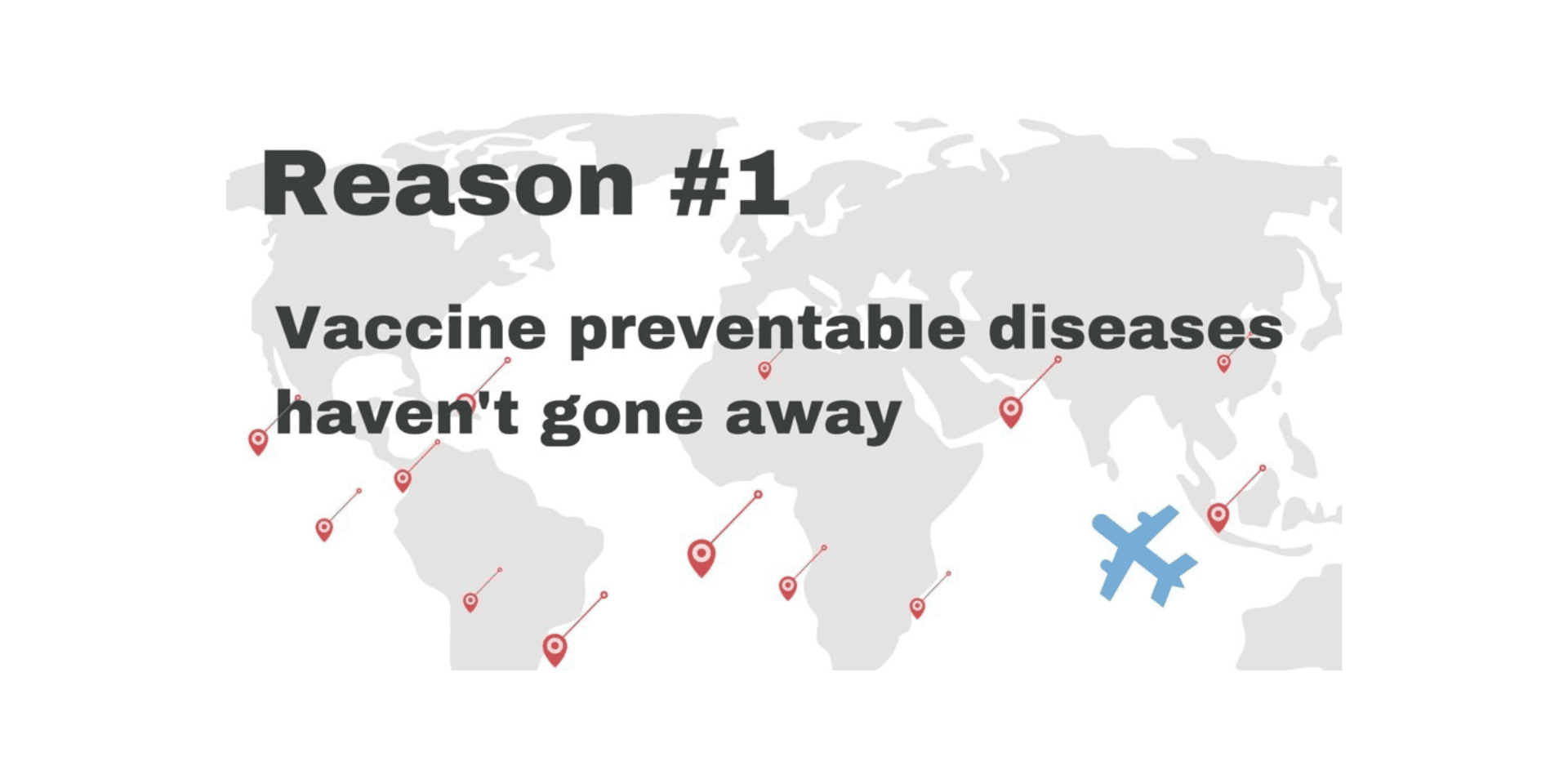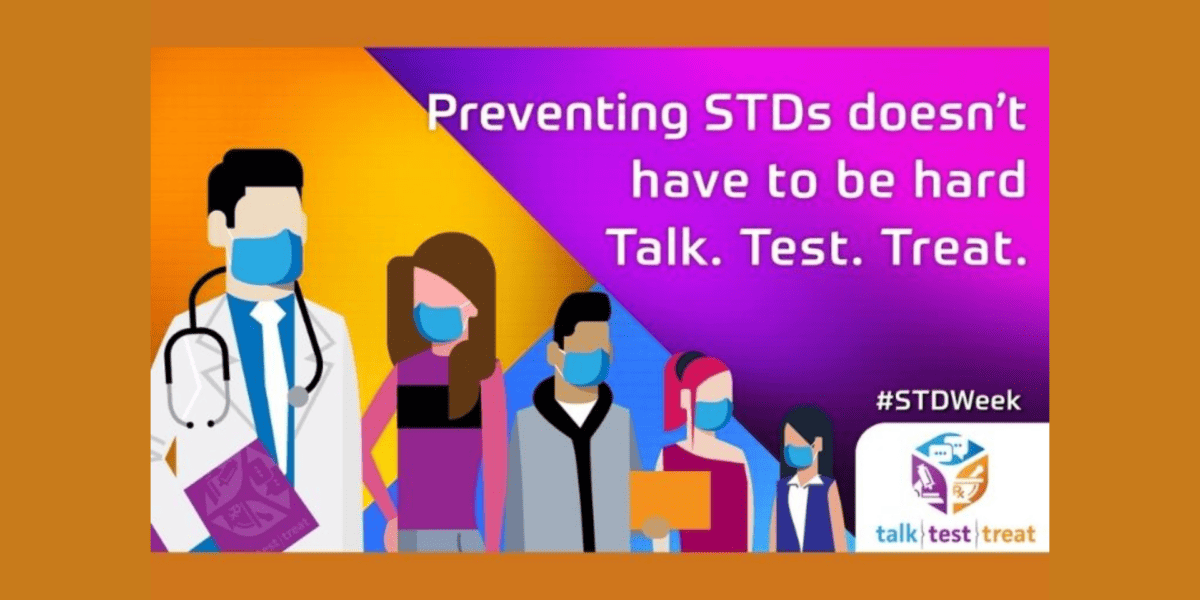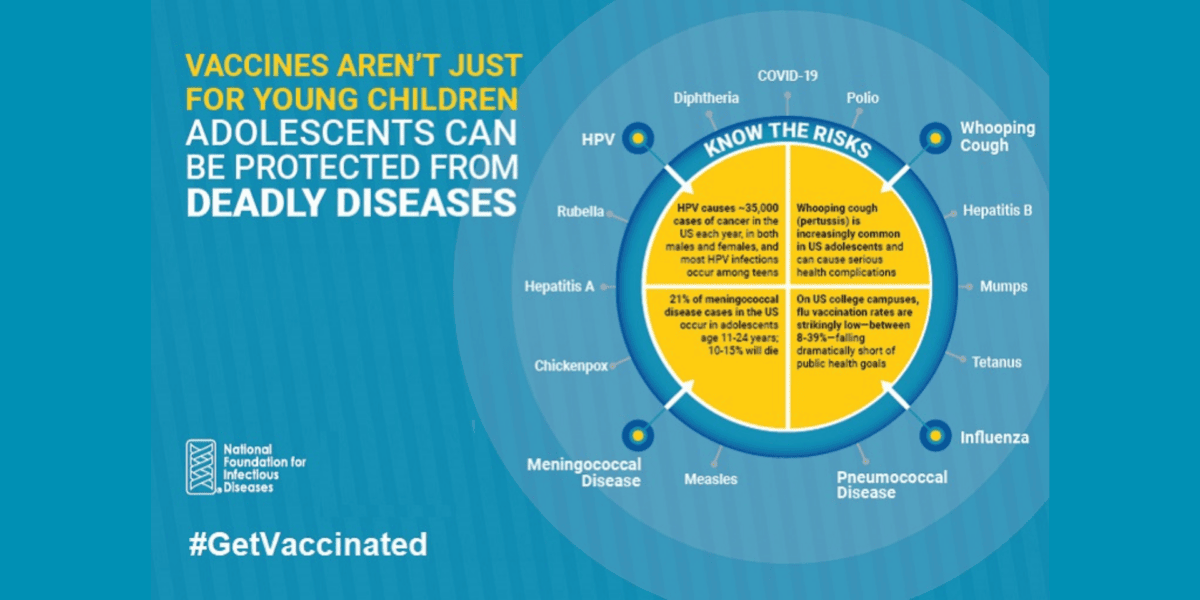
Every August, National Immunization Awareness Month (NIAM) provides an opportunity to highlight the importance of vaccines across the lifespan. Get involved with NIAM and help spread the word to encourage healthy behaviors by sharing this post and related graphics.
1. Vaccine-preventable diseases haven’t gone away
The viruses and bacteria that cause illness and death still exist and can be passed on to those who are not protected by vaccines. When people can travel across the globe in just one day, it’s not hard to see just how easily diseases can travel too.
2. Vaccines help keep you healthy
The Centers for Disease Control and Prevention (CDC) recommends vaccinations throughout your life to protect against many preventable diseases. When you skip vaccines, you leave yourself vulnerable to illnesses such as shingles, pneumococcal disease, influenza, and HPV and hepatitis B, both leading causes of cancer.
3. Vaccines are as important to your overall health as diet and exercise
Like eating healthy foods, exercising, and getting regular check-ups, vaccines play a vital role in keeping you healthy. Vaccines are one of the most convenient and safest preventive care measures available.
4. Vaccination can mean the difference between life and death
Vaccine-preventable infections can be deadly. More than 50,000 US adults die each year from vaccine-preventable diseases and their complications–more than breast cancer, HIV/AIDS, or motor vehicle traffic accidents.
5. Vaccines are safe
The US has the best post-licensure surveillance system in the world, ensuring the safety of vaccines. There is extraordinarily strong data from many different scientists and medical investigators all pointing to the safety of vaccines. In fact, vaccines are among the safest of all medical products.
6. Vaccines can’t give you the disease they are designed to prevent
You cannot “catch” the disease from the vaccine. Some vaccines contain “killed” virus, and it is impossible to get the disease from them. Others have live, but weakened, viruses designed to ensure that you don’t catch the disease.
7. Young and healthy people can get very sick, too
Infants and seniors are at a greater risk for serious infections and complications in many cases, but vaccine-preventable diseases can strike anyone. If you’re young and healthy, getting vaccinated can help you stay that way.
8. Vaccine-preventable diseases are expensive
Diseases not only have a direct impact on individuals and their families, but also carry a high price tag for society as a whole, exceeding $10 billion per year. An average influenza illness can last up to 15 days, typically with five or six missed work or school days.
9. When you get sick, your children, grandchildren, and parents are also at risk
A vaccine-preventable disease that might make you sick for a week or two could prove deadly for your children, grandchildren, or parents if it spreads to them. Getting vaccinated protects you and your family, friends, and co-workers.
10. Everyone deserves the chance to stay healthy–help protect the herd
Staying up to date on all recommended vaccines is a great way to stay healthy. By getting vaccinated you not only protect yourself but also others who cannot be vaccinated due to weakened immune systems and certain chronic health conditions.
Vaccines are among the safest and most effective ways to protect yourself and those you love from infectious diseases. Don’t hesitate…vaccinate!
To join the conversation, follow us on Twitter (@nfidvaccines) using the hashtag #NIAM15, like us on Facebook, join the NFID Linkedin Group, and subscribe to NFID Updates.
Related Posts

Protecting Children as They Head Back to School
As school gets underway, experts from the National Foundation for Infectious Diseases (NFID) offer insights on childhood immunization

Lifelong Conversations about Sexual Health
Teen Health Week is April 4-10, 2022, and STD Awareness Week is April 10-16, 2022, both of which provide an opportunity for healthcare professionals to begin lifelong conversations with patients about sexual health and the importance of staying up to date on all recommended vaccines …

Vaccines Are Not Just for Young Children
CDC recommends vaccinations from birth to adulthood to provide a lifetime of protection. Yet many adolescents are not vaccinated as recommended, leaving them unnecessarily vulnerable. International Adolescent Health Week (March 20-26, 2022) is a perfect time to make sure that pre-teens and teens are up to date on all recommended vaccines …

